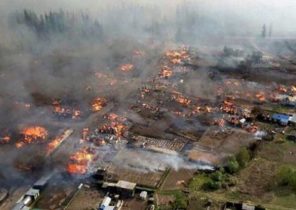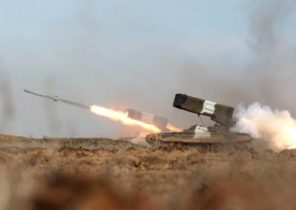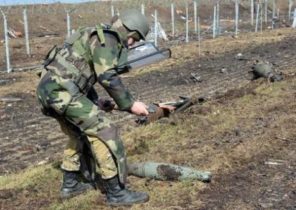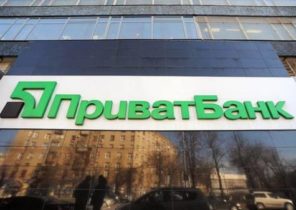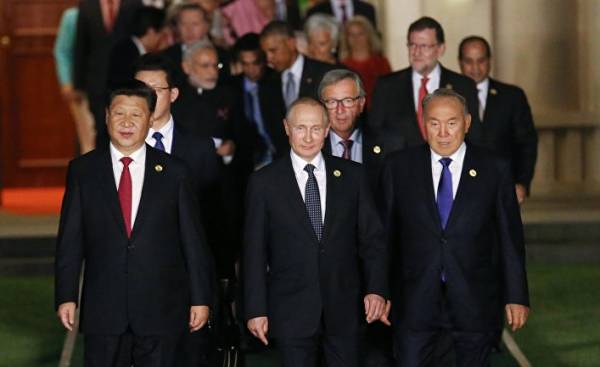
A little more than 23.00, Sunday evening, jubilant human stream flowing toward the Gulf the Golden horn, which cuts into the European Peninsula of Istanbul.
They just heard the speech of Recep Tayyip Erdogan in Istanbul from the balcony of the presidential residence, located in the most expensive quarter of the city. He thanked them for their support and for the fact that in case of victory in the next presidential election he will have more power than now.
“I’m so happy,” says Geffert Saadet (Saadet Deffert). She is 50, but the expression she is, like she — a teenage girl just met the guy who is in love.
“He’s one of us, from the people she says about Erdogan. He’s not a dictator.”
Despite the threats from the rest of the world
According to a recent Freedom House report, dedicated to the former Communist countries of Europe, the development went in the opposite direction. In 18 of 29 countries, democracy is losing ground, this is the biggest setback after the financial crisis of 2008. For the first time since 1995, Freedom House klassificeret some of these countries as “consolidated authoritarian regimes”, rather than as democratic.
Many Turks expressed the view that if you give one person more power, it does not mean a weakening of democracy. On the contrary, the man whom most can more effectively carry out the policy, which was promised when he was chosen. It may seem that patience towards democratic systems are about to burst.
It is this way of thinking we see in many places in Europe, particularly in Russia, Hungary and Poland. And in countries such as France and Austria, anti-liberal policy of the ultra-right-wing a lot of supporters.
Here are five reasons why people vote the way they vote.
1. People are tired of the bickering between politicians. They are attracted by promises of quick reforms
In the first years after coming to power in Turkey of the party of justice and development in 2002, the country has seen remarkable economic growth. Particularly significant improvements have occurred in the health care system. After the financial crisis of 2008, the situation was not as prosperous, but the party promises to carry out more reforms for the benefit of the economy. But for this she needs a little more power.
“The power will be collected in the same hands. And then we can run the country better than others,” explained ISA Mesih Sahin, a local politician from the Party of justice and development on the eve of elections.
The reason that 78% of Russians say that they “trust in Putin”, according to polls by the Levada center, is that, in their opinion, it has strengthened the reputation of the country, strengthened law and order, and increased living standards.
The dilemma for democracy is that the more honest politicians talk about the difficulty and their own limitations, the more they are vulnerable to different attacks, writes jörg Lau (Jörg Lau) in Die Zeit. And as an example uses pexit: the one who was against breccia, was forced to argue that the UK is dependent on others and alone will be weaker, while those who supported breaksit could talk about how you can restore its former glory. Which of the two options is more enticing?
2. The heyday of nationalism
Dreams of a strong leader go hand in hand with nationalism. A leader needs to embody the nation. The goal is to regain its rightful place in history, when the country was a superpower or an Empire. Even internal politics often bears the imprint of the struggle for the story. In Poland we see stories about poles who contributed to the destruction of the Jews, or helped the Germans during the war, are silenced. In Hungary, the praise of a strong leader of the period between the world wars of Miklos Horthy.
For the Turks the strong national feelings characteristic for a long time. And Recep Tayyip Erdogan knew what to play, when several European countries refused to the Ministers from the Party of justice and development to engage in pre-election agitation among the Turks living in these countries, supposedly because of security reasons.
“In the election campaign the main thing was not the Constitution, and how large are racist to Europeans. All to whip up nationalist feelings,” — said in an interview with Aftenposten Andrew Finkel (Andrew Finkel), a journalist who worked in Turkey for almost 30 years.
3. People don’t know what the alternatives are
Public opinion polls in many countries where the departure from democracy and reform show that the population knows as little about the world and about their own country.
And although the Turks, and Russians have access to independent media, the majority still trust the TV channels controlled by Erdogan or Putin.
Sociological surveys in Russia show that a large-scale support for a “strong leader” stems from the fact that many Russians are skeptical of what may come to mind “people”.
In Hungary and Poland, we watched as the national-conservative regimes immediately after the election, tried to establish control over the media. And in countries where few people speak other languages, not only native, it soon appeared that the people was not enough knowledge. And this increased their vulnerability to propaganda.
4. To be friends with those who rule, it is advantageous
A connoisseur of Turkey, Vigen Einar (Einar Wigen), doctoral candidate of the Institute of culture studies and Oriental languages at the University of Oslo, concludes that in countries such as Turkey, it is advantageous to keep who wins the election.
“Erdogan and his party showed his supporters in the party to be loyal and profitable. The poor who receive food assistance, you know what they are getting it because of loyalty to the party. People, whose situation is somewhat better, showing loyalty, can provide an attractive job in the public service, in the party or in private firms that may be associated with the party,” says Vigen.
A similar situation can be observed also in Russia and in Hungary. Those who are close to the head, making good money. In favor of it and family and friends. Those who do not cooperate, they fear for their position.
5. The foreign threat. We must unite
The Prime Minister of Hungary Viktor Orban is a strong leader, the strategy of which is to caution against external enemies: the EU system in Brussels, multinational corporations and migrants. If you ask the Hungarians, why do they support Orban, the answers will often relate to self-determination and the desire to protect the Christian and Hungarian values.
Many of the new authoritarian leaders in the world have achieved popularity and won the elections, pointing to external enemies, when they could not solve the problems of corruption or low standard of living.
“We need to create a foreign enemy. And then people can unite around one man in the struggle against the imperialists outside the country, and the “fifth column” inside the country,” says Einar Viken about what happened in Turkey.
“Most authoritarian regimes have great problems with resolving the most important domestic problems”, — says Vice-President Thomas Carters (Thomas Corthers) and Richard Youngs (Richard Youngs) Fund Karegi in Foreign Affairs.
… but “democracy is not dead”
They believe that it is wrong to portray a dying democracy, despite the development of the situation in countries such as Turkey, Russia, China, Egypt, Philippines and India.
“Problems of an authoritarian state because they can not present their constituents the results are often the reason that they are more aggressive behavior outside its borders,” — say the experts of the Carnegie endowment.
“The biggest threat is not the success of the authoritarian system, and that they create instability for the rest of the world.”


